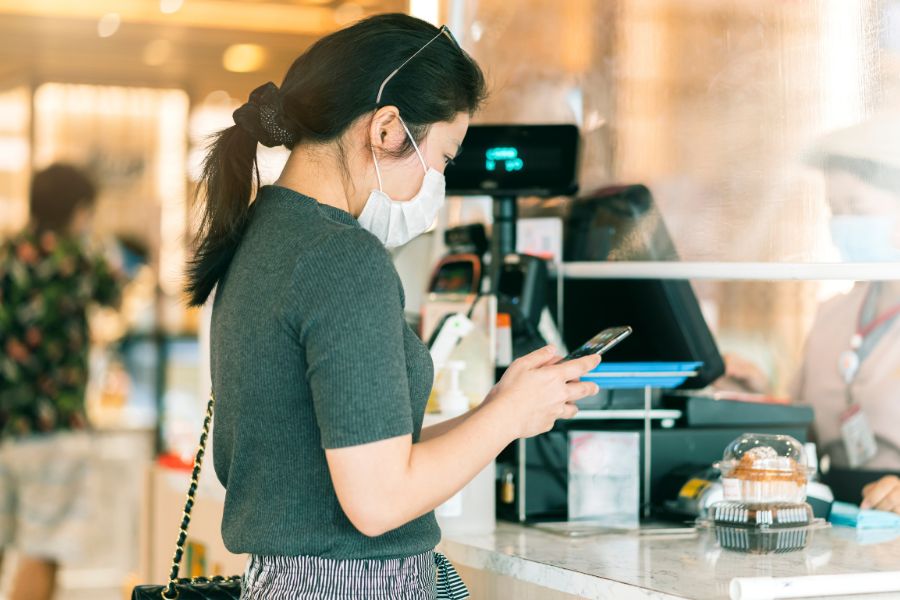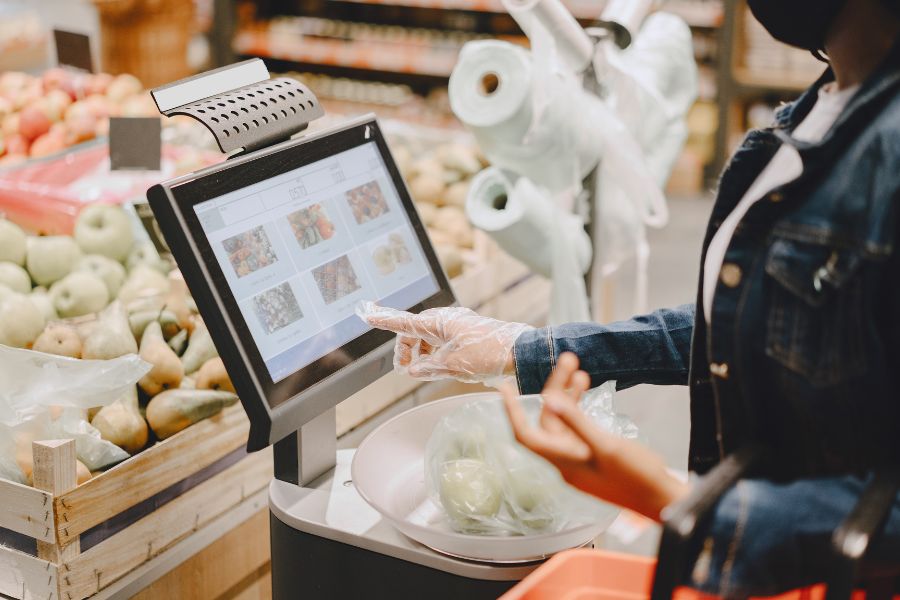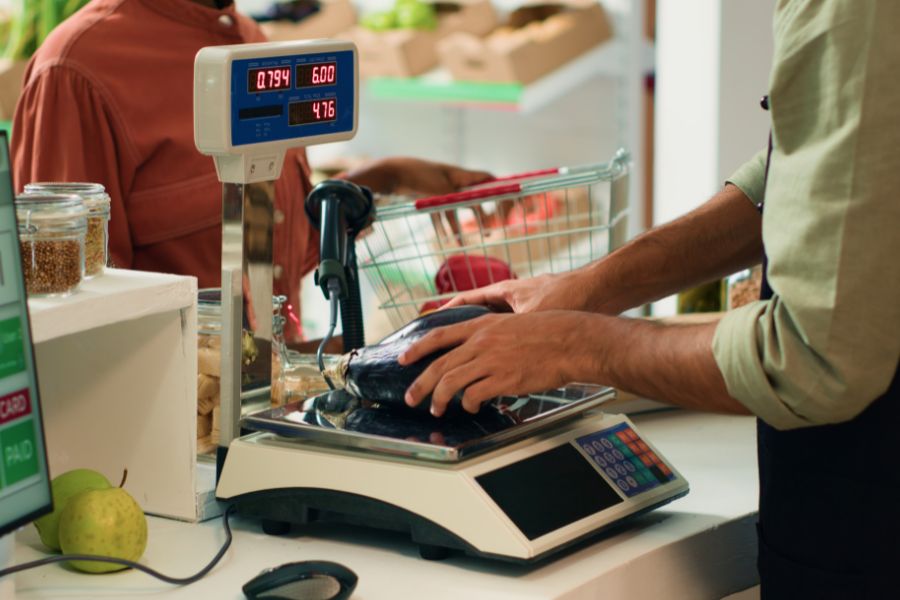Thailand’s digital economy continues to expand at a steady pace, reshaping how local businesses interact with consumers. According to the Electronic Transactions Development Agency (ETDA), the country’s ecommerce market reached $26.2 billion in 2023 and is expected to grow by 13.1% annually. To stay competitive in this shifting landscape, businesses are turning to integrated POS ecommerce systems. These tools do more than process payments — they streamline operations, improve customer experience, and connect online and offline sales. In this article, we’ll walk through five practical ways a POS ecommerce solution in Thailand can support your business growth and day-to-day management.
Highlights:
- Thai eCommerce is shaped by mobile-first shoppers, social commerce trends, and strong demand for local payment options like PromptPay and TrueMoney.
- A POS eCommerce system connects online and offline sales, giving Thai businesses better stock control, faster transactions, and smoother customer experiences.
Overview of Ecommerce Market in Thailand
Thailand’s ecommerce industry is is gaining momentum, fueled by rising internet access, widespread smartphone use, and a growing preference for digital payments. In 2024, the market is projected to cross $30 billion, placing Thailand among Southeast Asia’s top digital economies.
The local ecommerce landscape is shaped by a mix of global and regional platforms, including:
- Lazada (backed by Alibaba)
- Shopee (owned by Sea Group)
- JD Central (a joint venture between JD.com and Central Group)
- TikTok Shop (rising as a strong social commerce player)
- Local marketplaces such as Pomelo, Tarad, and Kaidee
The market spans several transaction models – business-to-consumer (B2C), business-to-business (B2B), and business-to-government (B2G). B2C leads the pack, accounting for around 50% of total transactions, followed by B2B at 27% and B2G at 23%.
The consumer base skews young. Shoppers aged 17–36 make up 62% of the market, while those between 37–50 account for 33%. Only 5% fall within the 51–71 age range. This younger demographic is driving adoption of mobile-first platforms, seamless checkout experiences, and social commerce.
That said, local retailers still face challenges, from competing with low-cost imports to keeping up with fast-moving technology trends. But the outlook remains positive. Investments in digital infrastructure, supportive government initiatives, and a tech-savvy population are setting the stage for continued growth in Thailand’s ecommerce sector.
5 Ways A POS Ecommerce Thailand Can Boost Your Business
Let’s take a look at five ways the right POS ecommerce Thailand solution can support your growth.
Optimizing Business Operations with Smart POS Management
Running an eCommerce business in Thailand means juggling orders, stock, and customer expectations, often across multiple channels. An innovative POS eCommerce system simplifies operations by:
- Real-time inventory tracking: Prevent stock shortages and overstocking with automatic inventory updates across all sales channels.
- Centralized data management: Keep product details, pricing, and stock levels synchronized across physical stores and online platforms for consistency.
- Automated order processing: Minimize human errors by integrating your POS with your e-commerce system, enabling faster and more accurate order fulfillment.
- Multi-store management: If you manage several branches or booths in different locations, a centralized POS lets you shift stock, monitor sales, and manage staff without switching between systems.
Business owners are able to save time, avoid manual work, and maintain accuracy across all touchpoints — whether customers shop in-store in Bangkok or online from Chiang Mai, with a comprehensive POS ecommerce solution.
Better Customer Experience and Engagement
A smooth and memorable shopping experience keeps customers coming back. A POS eCommerce Thailand system built with customer-focused features:
- Omnichannel consistency: Shoppers expect the same level of service whether they’re browsing online or walking into your store. An integrated POS keeps product details, promotions, and customer records aligned.
- Personalized promotions and discounts: Use purchase history and behavior insights to create targeted deals that feel personal — not generic.
- Faster and more flexible payment options: The system should support a range of payment methods popular in Thailand, like PromptPay, TrueMoney, Rabbit Line Pay, and Buy Now Pay Later (BNPL) services.
- Customer loyalty programs: Manage rewards, memberships, and referral campaigns directly from your POS to keep customers engaged without adding more tools.
The result is a more personalized shopping journey that builds trust and encourages repeat business.
Increasing Revenue with Smarter Sales Strategies
A POS ecommerce Thailand system can boost revenue by offering data-driven insights and sales optimization tools, such as:
- Dynamic pricing strategies: Adjust prices in real time based on market demand, competitor activity, or seasonal trends. For example, during Songkran or 11.11 sales, you can quickly launch limited-time offers without manual updates.
- Upselling and cross-selling suggestions: Suggest related items based on what the customer is buying. If someone adds a laptop to their cart, the system can recommend a carry case or extended warranty.
- Multi-channel sales tracking: Monitor performance across your website, marketplaces like Shopee and Lazada, and physical stores — all from one dashboard.
- Advanced sales analytics: See which products are performing, which days drive the most revenue, or which promotions work best — so you can make smarter marketing and inventory decisions.
As a result, you can easily spot opportunities faster and respond more effectively to trends, with confidence.
Scaling Your Business with Flexible Growth Solutions
As your business expands, your POS system should be able to scale alongside it. A flexible, cloud-based system supports that growth by:
- Seamless multi-location support: Open a new branch or launch on TikTok Shop? Your POS should keep everything in sync without extra setup.
- Cloud-based accessibility: Track inventory, sales, and team performance even if you’re off-site or traveling.
- Integration with third-party applications: Connect with accounting tools like Xero and QuickBooks, or plug into ERP and marketing platforms to avoid data silos.
- Adaptability to market trends: As trends like live shopping or social commerce evolve, your POS should allow you to add new channels without rebuilding your system.
Instead of slowing down growth, the right POS removes complexity, so you can focus on scaling smart.
Staying Compliant and Secure
Like anywhere in the world, in Thailand, businesses must protect customer data and follow national regulations around tax and digital transactions. A dependable POS system supports this by:
- Secure payment processing: Encryption and tokenization help protect card and wallet transactions, reducing the risk of fraud.
- Compliance with Thai tax regulations: Built-in VAT management and digital invoice generation so you’d stay compliant with the Thai Revenue Department.
- User access control: Role-based permissions help prevent unauthorized access to sensitive data like sales reports or customer records.
Security and compliance aren’t just back-office concerns — they affect customer trust and business continuity.
ConnectPOS SEA – A Comprehensive POS for Ecommerce Business Thailand
As retail and digital commerce continue to overlap, Thai businesses need a solution that can handle both tracks without friction. ConnectPOS SEA is built for exactly that.
- Real-time inventory sync across online stores and physical branches
- Thai language support and local currency (THB) compatibility
- Integration with Shopee, Lazada, TikTok Shop, and Facebook Live
- Local payment methods: PromptPay, Rabbit LINE Pay, TrueMoney Wallet, COD
- Mobile POS for tablets and smartphones — ideal for events and pop-ups
- Multi-store and multi-warehouse management
- Built-in loyalty programs, discounts, and digital vouchers
- Sales analytics with customer insights and product trends
- Support for VAT compliance and e-tax invoice generation
- Integration with accounting tools like Xero, QuickBooks, and local ERP systems
- Role-based staff access control and user permissions
- Offline mode support — keep selling even without internet
In sum, ConnectPOS SEA is ideal for various industries in Thailand, including convenience stores, supermarkets, retail chains, fashion boutiques, and event-based businesses.
FAQs: POS ecommerce Thailand
- Is a POS system necessary for small businesses in Thailand?
Yes, a POS system is essential for small businesses in Thailand as it streamlines sales, manages inventory, and improves customer transactions. With features like real-time reporting, multiple payment options, and seamless integration with e-commerce platforms, a POS system enhances efficiency and helps small businesses grow in a competitive market.
- Which industries in Thailand benefit most from a POS ecommerce system?
Industries such as convenience stores, supermarkets, retail chains, fashion boutiques, and event businesses benefit the most from a POS e-commerce system in Thailand. These industries require real-time inventory tracking, seamless online-offline integration, and flexible payment solutions to enhance customer experiences and optimize business operations efficiently.
- How do I choose the best POS provider for my business in Thailand?
To choose the best POS provider in Thailand, consider industry-specific features, integration with e-commerce platforms, payment flexibility, scalability, customer support, and pricing. Look for a system that supports omnichannel operations, offers real-time analytics, and provides reliable after-sales support to ensure smooth business growth and operational efficiency.
Conclusion
A POS ecommerce Thailand provides greater control over your sales, tracking, and management across both online and offline channels. It connects vital aspects of your business, such as payments, inventory, and customer data, in real time. With support for local platforms, Thai payment methods, and multi-language interfaces, it aligns with how retailers in Thailand operate. This system keeps everything synchronized for stores handling multiple branches, marketplaces, or social commerce, without adding complexity. As a result, your retail business becomes more connected, responsive, and easier to scale.
For retailers seeking a scalable and future-ready POS ecommerce Thailand, ConnectPOS SEA offers a comprehensive solution. Contact us today to transform your business with seamless omnichannel integration and advanced POS features!





